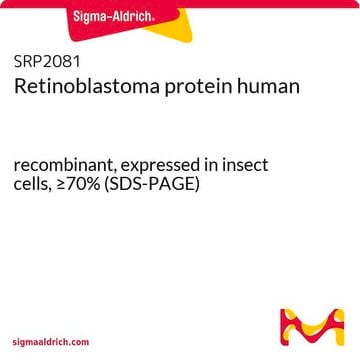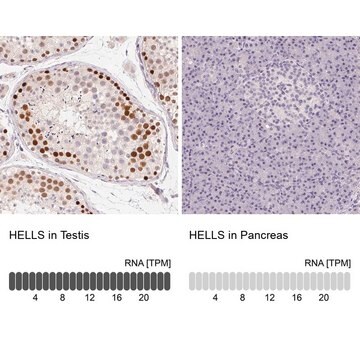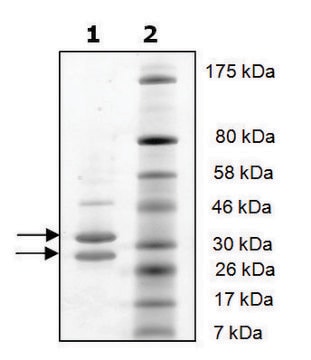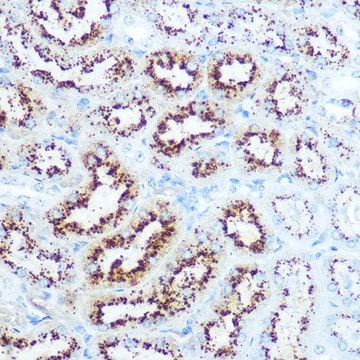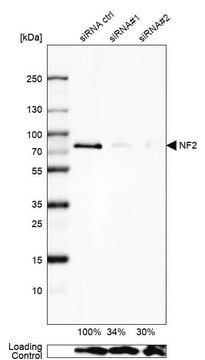12-439
Retinoblastoma Protein (aa 773-928)
Recombinant fusion protein containing the C-terminal fragment (residues 773-928) of human retinoblastoma protein (Rb) with an N-terminal His6-tag, expressed in E. coli.
Synonym(s):
Rb Protein, Retinoblastoma Protein
About This Item
Recommended Products
recombinant
expressed in E. coli
Quality Level
form
liquid
manufacturer/tradename
Upstate®
concentration
2.0 mg/mL
technique(s)
activity assay: suitable (kinase)
NCBI accession no.
UniProt accession no.
shipped in
dry ice
Gene Information
human ... RB1(5925)
Quality
Physical form
Storage and Stability
Legal Information
Disclaimer
Signal Word
Danger
Hazard Statements
Precautionary Statements
Hazard Classifications
Eye Dam. 1 - Repr. 1B - Skin Corr. 1C
Storage Class Code
6.1D - Non-combustible acute toxic Cat.3 / toxic hazardous materials or hazardous materials causing chronic effects
WGK
WGK 2
Flash Point(F)
Not applicable
Flash Point(C)
Not applicable
Certificates of Analysis (COA)
Search for Certificates of Analysis (COA) by entering the products Lot/Batch Number. Lot and Batch Numbers can be found on a product’s label following the words ‘Lot’ or ‘Batch’.
Already Own This Product?
Find documentation for the products that you have recently purchased in the Document Library.
Our team of scientists has experience in all areas of research including Life Science, Material Science, Chemical Synthesis, Chromatography, Analytical and many others.
Contact Technical Service